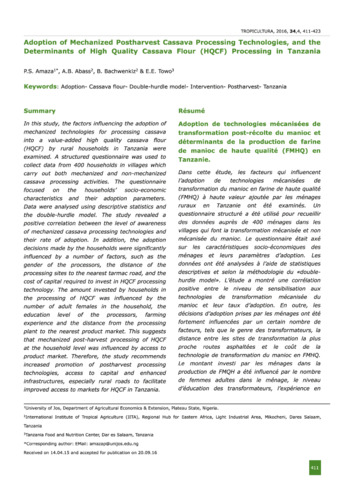Adoption of mechanized postharvest cassava processing technologies, and the determinants of high quality cassava flour (HQCF) processing in Tanzania
Abstract
In this study, the factors influencing the adoption of mechanized technologies for processing cassava into a value-added high quality cassava flour (HQCF) by rural households in Tanzania were examined. A structured questionnaire was used to collect data from 400 households in villages which carry out both mechanized and non-mechanized cassava processing activities. The questionnaire focused on the households' socio-economic characteristics and their adoption parameters. Data were analysed using descriptive statistics and the double-hurdle model. The study revealed a positive correlation between the level of awareness of mechanized cassava processing technologies and their rate of adoption. In addition, the adoption decisions made by the households were significantly influenced by a number of factors, such as the gender of the processors, the distance of the processing sites to the nearest tarmac road, and the cost of capital required to invest in HQCF processing technology. The amount invested by households in the processing of HQCF was influenced by the number of adult females in the household, the education level of the processors, farming experience and the distance from the processing plant to the nearest product market. This suggests that mechanized post-harvest processing of HQCF at the household level was influenced by access to product market. Therefore, the study recommends increased promotion of postharvest processing technologies, access to capital and enhancedinfrastructures, especially rural roads to facilitate improved access to markets for HQCF in Tanzania.

